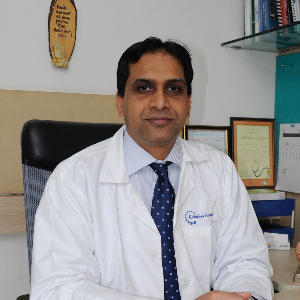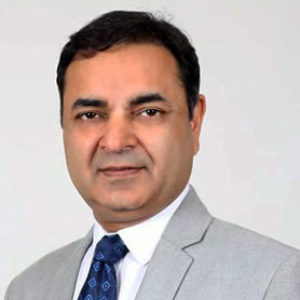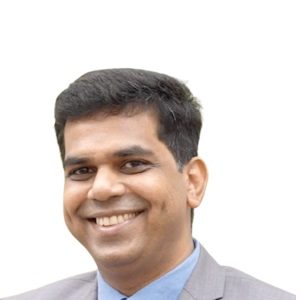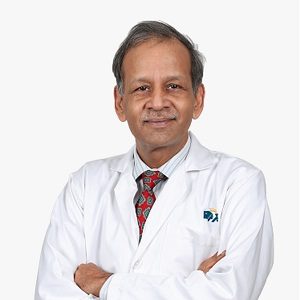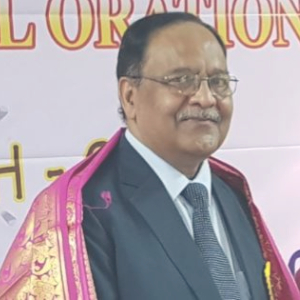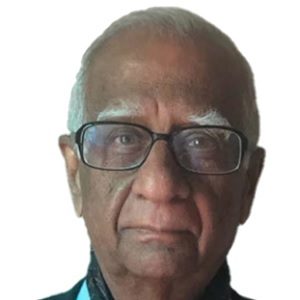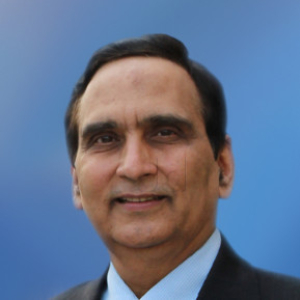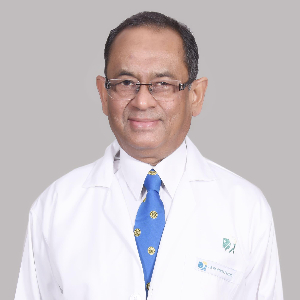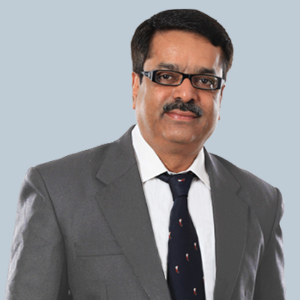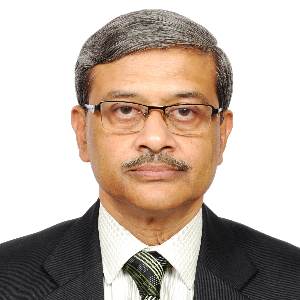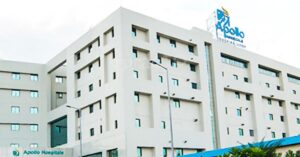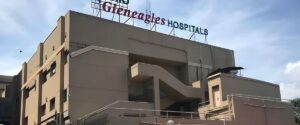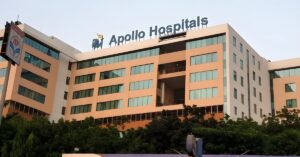Best Doctors in India for Craniotomy
- Top Neuro Surgeon & Spine Surgeon | Kokilaben Hospital, Mumbai, India
- 26+ Years Experience
- Kokilaben Dhirubhai Ambani Hospital
Profile Highlights:
- Dr. Abhaya Kumar is a leading name in the field of Neurosurgery in India and is currently associated with Kokilaben Dhirubhai Ambani Hospital, Mumbai as the Head and Consultant of Neurosurgery and Minimally Invasive Spine Surgery.
- He is an expert in Minimally Invasive Spine Surgery, Brain surgery, and Stereotactic Radiosurgery. He has performed more than 3500 spine surgeries and 5500 brain surgeries in KDAH alone.
- His primary focus includes Minimally Invasive Spine Surgery (MISS). Till date, he has handled over 2500 Minimal Invasive spine cases in the hospital with an outstanding success record.
- In addition, he has treated over 300 cases of Craniovertebral Junction anomalies and performed surgeries for approximately 3000 brain tumors and over 500 spinal cord tumors. He frequently utilizes advanced technologies like Intraoperative MRI (IMRIS), neuro-navigation, stereotaxy, and neuroendoscopy in his procedures.
- Top Neurosurgeon and Spine Surgeon | Apollo Hospital, New Delhi, India
- 33+ Years Experience
- Indraprastha Apollo Hospital, New Delhi
Profile Highlights:
- Dr. Sudheer Kumar Tyagi is a highly esteemed Neurosurgeon with over 33 years of exemplary experience in the field of neurosurgery.
- Affiliated with Apollo Hospitals Indraprastha in New Delhi, Dr. Tyagi holds an MBBS, MS, and MCh in Neurosurgery.
- His career is marked by a dedication to advancing neurosurgical techniques and improving patient outcomes through precise and innovative surgical practices.
- Neurosurgeon | Apollo Hospitals Greams Road, Chennai | India
- 10+ years’ experience
- Apollo Hospitals Greams Road
Profile Highlights:
- Dr. Srinivasan Paramasivam is a well-known Neurosurgeon in India having an overall experience of 10 years.
- He is associated with Apollo Hospital, Chennai as a senior consultant – neurosurgeon following his assignments abroad.
- Dr. Paramasivam earned a fellowship in Endovascular Neurosurgery from New York. He has specialized experience in Neuro Interventional Surgery, Cerebral Angioplasty, Brain Tumor Surgery, Surgical Clipping, etc.
- Top Neurosurgeon | Apollo Hospital, New Delhi, India
- 27+ Years Experience
- Indraprastha Apollo Hospital, New Delhi
Profile Highlights:
- Dr. Pranav Kumar is one of the best Neurosurgeons in India, having a good success record of over 27 years in performing deep-rooted tumors in the skull.
- Since 1996, Dr. Kumar has been working as a senior consultant neurosurgeon at Apollo Hospital, New Delhi.
- Dr. Pranav Kumar is skilled in surgeries for brain tumors deep-seated at the base of the skull and aneurysms affecting the cerebrovascular system.
- Dr. Kumar specializes in performing the complex ‘Auditory Brainstem Implant,’ where a Bionic device is inserted in the brainstem to recover the hearing capacity in deaf patients who cannot be treated with a cochlear implant.
- He completed microsurgery training at the National Neurosurgical Centre at Beaumont Hospital in Ireland.
- Top Neurosurgeon | Max Hospital, Saket, New Delhi, India
- 45+ Years Experience
- Max Super Specialty Hospital, Saket, New Delhi
Profile Highlights:
- Dr. V K Jain is a leading neurosurgeon in India with refined medical surgical precision.
- Dr. Jain has worked in a variety of significant positions in hospitals all across the world over the course of his career.
- Dr. Jain has also served as a visiting professor at a number of prestigious hospitals throughout the world.
- He has also attended many conferences, workshops, and seminars and has also been invited as faculty to many conventions both in India and abroad.
- Top Neurosurgeon | Apollo Hospital, New Delhi, India
- 60+ Years Experience
- Indraprastha Apollo Hospital, New Delhi
Profile Highlights:
- Dr. Ravi Bhatia is a veteran neurosurgeon and spine surgeon at Indraprastha Apollo Hospital New Delhi.
- He has about six decades of experience in the management and surgeries of neurological disorders. Before retiring, Dr. Bhatia worked at another prestigious Indian hospital, AIIMS, New Delhi.
- He is particularly interested in Neuro-Oncology, Brain and Spine Tumors, Cerebrovascular Surgery, and Craino vertebral abnormalities.
- To date, Dr. Bhatia has treated neuro patients with a great success rate.
- He authored chapters in many textbooks and has around 95 papers for medical journals to his credit.
- Top Neurosurgeon | Apollo Hospitals, New Delhi, India
- 35+ Years Experience
- Indraprastha Apollo Hospital, New Delhi
Profile Highlights:
- Dr. S.K. Sogani is a highly respected Neurosurgeon with over 35 years of experience, currently affiliated with Apollo Hospitals Indraprastha in New Delhi.
- Holding an MBBS, MS, and MCh, Dr. Sogani is renowned for his expertise in treating complex neurosurgical conditions such as craniosynostosis, epilepsy, multiple sclerosis, and Moyamoya disease.
- His surgical prowess extends to intricate procedures like craniotomies, spinal fusions, and pediatric neurosurgeries, with over 5,000 successful cases to his credit.
- Top Neurosurgeon & Spine Surgeon | Apollo Hospital, New Delhi, India
- 30+ Years Experience
- Indraprastha Apollo Hospital, New Delhi
Profile Highlights:
- Dr. Rajendra Prasad is one of the most experienced Neurosurgeons and Spine surgeons in India.
- Dr. Rajendra Prasad is an expert in all neuro and spine surgeries that including micro neurosurgery, minimally invasive spine surgery, surgery for degenerative spine diseases, surgery for brain and spine trauma, and neuro tumor surgeries.
- Neurosurgeon, Mumbai, India
- Over 25 years’ experience
- Fortis Hiranandani Hospital Vashi Mumbai
Profile Highlights:
- Dr. Ashok Hande is a renowned neurosurgeon in Mumbai who holds the credit for 300 AVMs, 1400 skull base tumor surgeries, 3600 surgeries for cranial and spinal trauma, 1200 lumbar prolapsed intervertebral disc surgeries, 800 cerebral aneurysms, and more than 100 microvascular decompressions.
- He holds an experience encompassing 25+ years and holds the credit for pioneering neurosurgery in Mumbai by bringing in new and advanced neurosurgical procedures for brain and spine surgery.
- Neurosurgeon, Mumbai, India
- Over 28 years’ experience
- Fortis Hiranandani Hospital Vashi Mumbai
Profile Highlights:
- Dr. Deepu Banerji is a leading name in the field of Neurosurgery in India and possesses extensive skills in minimally invasive and micro neurosurgery.
- He has been practicing neurosurgery for over 28 years and is counted among the best microscopic neurosurgeons in the country.
- Apart from minimally invasive surgeries, his expertise lies in skull base surgery, brain tumors surgery, vascular surgery, and spine surgeries, and has handled numerous cases of brain and spine diseases and disorders.
Best Hospitals in India for Craniotomy
- City: New Delhi, India
Hospital Highlights:
- Equipped with 650 beds, BLK-Max Super Speciality Hospital is the largest stand-alone private sector hospital in Delhi.
- With over 1500 healthcare providers and 150 globally renowned super specialists, the hospital is one of Asia’s largest BMT Centres. The hospital is known for having some of the best cancer doctors in the country.
- The hospital is NABH and NABL accredited and was inaugurated by the first Prime Minister of India. Pt. Jawahar Lal Nehru.
- City: Hyderabad, India
Hospital Highlights:
- Located in the vibrant city of Hyderabad, Apollo Health City is a world-renowned medical facility that provides outstanding care and treatment to patients coming from different parts of the world.
- Founded in 1988, this 550-bed multispecialty hospital with 50 specialties and 12 Centres of Excellence continues to deliver outstanding outcomes for patients with the simplest to the most complicated medical conditions.
- Backed by the latest medical equipment and a dedicated team of professionals, the hospital provides comprehensive treatment across various specialties including, cardiology, critical care, neurosciences, cancer, orthopedics, gynecology, ENT, transplants, gastroenterology, etc.
- Apollo Health City is a cutting-edge healthcare facility that combines various facilities under one roof. These may include state-of-the-art physical medicine, rehabilitation, and wellness services with education, research, telemedicine, innovative medical devices, disease management programmes, and medical talents.
- The hospital is known for offering top-notch cancer treatment accompanied by cutting-edge facilities and technology.
- The hospital also offers a broad spectrum of cosmetic procedures that improve not just appearance but also comfort.
- In 2011, Apollo Health City was the recipient of the Asian Hospital Management Award (AHMA).
- In 2013, the Government of India recognized Apollo Health City as the top medical tourism destination in the country.
- City: Mumbai, India
Hospital Highlights:
- Kokilaben Dhirubhai Ambani Hospital, Named after the wife of Indian industrialist Dhirubhai Ambani, the founder of Reliance Industries, this is one of the top hospitals in Mumbai. This 750-bed multi-specialty hospital became operational in 2009. Known as one of India’s most advanced tertiary care facilities, the hospital is designed to raise India’s global standing as a healthcare hub, with an emphasis on excellence in clinical services.
- Kokilaben Dhirubhai Ambani Hospital uses Protocol and Care Pathway based treatment models to ensure the best outcomes for patients.
- The hospital represents a confluence of top-notch talent, cutting-edge technology, state-of-the-art infrastructure, and, most importantly commitment.
- The hospital also holds the accreditation of the NABH, NABL, CAP, and JCI.
- The hospital has been recognized as the No. 1 Multispecialty Hospital in Mumbai and the West Zone for the fifth year in a row in 2020 by The Week.
- City: Chennai, India
Hospital Highlights:
- Apollo Cancer Centre in Teynampet, Chennai is one of the best super speciality hospitals in India. It is the country’s first ISO-certified healthcare facility.
- Additionally, it is the first hospital in Chennai and the first oncology hospital in India to receive NABH accreditation.
- The hospital provides advanced tertiary care in oncology, orthopedics, neurology and neurosurgery, head and neck surgery, and reconstructive and plastic surgery.
- Additionally, it offers specialized healthcare of international standards with results comparable to those of the best hospitals in the world.
- It is outfitted with 300 beds, the newest and greatest technology, a large pool of highly qualified specialists, and a committed team of medical and paramedical professionals.
- It is one of the first few medical facilities in India to offer comprehensive cancer care. A team of skilled medical, surgical, and radiation oncologists makes up the Tumour Board, which is a component of the complete treatment planning system. After reviewing reported cases, the Board determines in concert with diagnostic specialists what course of action is best for each individual patient. The panel is further supported by dieticians, medical counselors, speech therapists, and other pertinent specialists.
- The hospital launched the first ExcelsiusGPS® Spine Robot in South India and has completed over 50 surgeries till date.
- It is also one of the few cancer hospitals in India to offer Cyber Knife therapy. Till now it has completed 1320 Cyber Knife therapies.
- The institution is also one of the few in India with the capacity to do transplants and find a prospective unrelated donor. The hospital has performed over 1000 BMTs till now.
- Furthermore, it has an exceptional milestone of performing exultant Micro vascular free tissue transfer and Aesthetic surgeries on more than 1000 patients with success.
- City: Chennai, India
Hospital Highlights:
- Apollo Hospitals, Chennai, is one of the best hospitals for heart care in India. Over the years, Apollo has expanded all over India, as a healthcare chain.
- India’s first ‘Only Pancreas’ transplant was performed in Apollo Hospital. The hospital is known for successfully performing Asia’s first en-bloc combined heart and liver transplant, and over the years, it has attained a remarkable achievement in the global healthcare space. Around 3-4 organ transplants are performed in the hospital per day.
- Equipped with over 500 beds, this hospital in Chennai was established in 1983 and since then has been among the most preferred hospital for patients from all over the world.
- The hospital holds accreditation of the NABH and JCI and is the first hospital in India to be ISO 9001 and ISO 14001 certified. It is also the first South Indian Hospital to receive subsequent reaccreditation from the JCI USA 4 times.
- City: Chennai, India
Hospital Highlights:
- Established in 1999, Gleneagles Global Hospital, Chennai, is one of the top healthcare facilities in Southern India. It is part of the Gleneagles Hospital Chain, which is the fourth largest healthcare chain in the country. The hospital specializes in multi-organ transplants of kidneys, liver, lungs, heart, etc.
- The hospital has an excellent infrastructure and state-of-the-art lab and equipment set-up. The hospital boasts cutting-edge technologies, a highly skilled team of doctors and surgeons, and trained support staff. Located in Perumbakam, Chennai, it is one of India’s premier health care destinations. The hospital has performed some of the most complex surgical and clinical procedures in India including multi-organ transplantations.
- The hospital’s lung transplantation program is one of the best in the country. The hospital is known for having performed India’s first single lung transplant and first minimal invasive lung transplant. It is also the only Indian hospital to be associated with King’s College Hospital, London, United Kingdom for liver transplantations.
- City: Hyderabad, India
Hospital Highlights:
- KIMS Hospital (a brand name of Krishna Institute of Medical Sciences) is one of the largest and best multi-speciality hospitals in Hyderabad. The hospital provides various treatments to an enormous number of patients.
- The hospital has a capacity of more than 3000 beds. KIMS Hospitals offers different healthcare services in more than 25 specialities and super specialities.
- The hospital is equipped with modern medical equipment and technology. It has robotic equipment to provide minimal invasive techniques for patients.
- The hospital is aimed at providing world-class healthcare facilities and services at an affordable cost for patients.
- The various specialities and departments of the hospital include neurosciences, gastroenterology & hepatology, robotic science, reproductive sciences, dental science, oncological sciences, organ transplantation, heart and lung transplantation and mother and child care.
- City: Kolkata, India
Hospital Highlights:
- Established in 2003, Apollo Gleneagles Hospitals is a 750-bed multispecialty tertiary care hospital situated in Kolkata.
- With 33 Centres of Excellence and more than 50 specialties, Apollo Gleneagles Hospitals, Kolkata is capable of handling all sorts of patients.
- This tertiary care hospital, which is a 100% subsidiary of Apollo Hospitals Enterprise Ltd., India, is regarded as one of Kolkata’s top hospitals.
- The facility is a complete blend of cutting-edge technology, state-of-the-art infrastructure, and genuine hospitality.
- Focusing on numerous specialties, the hospital provides all-inclusive medical treatments supported by cutting-edge technology and a staff of highly qualified medical specialists.
- Patients across the globe come to Apollo Gleneagles Hospitals Kolkata for their treatment. Moreover, international patients receive full attention and assistance for their treatment and are provided with a hassle free experience.
- Apollo Gleneagles Hospitals, Kolkata is the only hospital in Eastern India to hold the Joint Commission International (JCI) certificate.
- It is also the only hospital in Kolkata to hold the NABL accreditation in six different categories, which includes Clinical Biochemistry, Clinical Pathology, Hematology & Immunohematology, Microbiology & Serology, and Histopathology & Cytopathology.
- Furthermore, Apollo Gleneagles Hospitals, Kolkata is known for performing the first ever Reverse Shoulder Prosthesis Replacement in East India.
- City: Bengaluru, India
Hospital Highlights:
- Established in 1991, Manipal Hospital, Old Airport Road, Bangalore is the flagship facility of the Manipal Hospitals Group, which is one of the largest networks of Multispecialty Private Hospitals in India.
- The facility is well-known for its state-of-the-art technology, performance-driven, patient-centric, and evidence-based approach.
- The facilities offered at Manipal Hospital meet the highest international standards, allowing the hospital to attract a large number of national and international patients.
- Their expertise encompasses the diagnosis and treatment of a wide range of diseases in several specializations that address both simple as well as complex medical procedures.
- There are total 600 beds accessible in the hospital for the in-patients so they may heal while being closely watched after by the medical team. In addition, it has 144 critical care units, including NICUs, ICCUs, and ICUs. Apart from that, the hospital also offers 20 contemporary, modular state-of-the-art operating rooms with all the amenities needed.
- The hospital has several departments that are overseen by highly skilled, certified, and experienced medical experts.
- One of the best departments in the hospital is that of the Cancer department which is known for its advanced cancer diagnosis and treatment facilities such as Intracavitary Chemotherapy, Biological Therapy, HIPEC, PIPEC, Nuclear Medicine, Radiation Therapy, etc.
- It is one of the few hospitals in Bangalore that provides full range of pediatric services, including pediatric emergency services, pediatric gastroenterology, pediatric neurology, pediatric cardiology, pediatric orthopaedics, pediatric allergies, pediatric immunology, and infectious diseases.
- Furthermore, Manipal Hospital, Old Airport Road, Bangalore is also regarded as one of the best hospitals for bone and spine related disorders.
- City: Mumbai, India
Hospital Highlights:
- Established in 2016, Apollo Hospitals, Navi Mumbai is one of Maharashtra’s most advanced multispecialty hospital. This 500-bed hospital provides sophisticated treatments and integrated super specialty services under one roof.
- The hospital features a cutting-edge infrastructure that houses 13 state-of-the-art operating rooms, advanced laboratory and medical diagnostics, and 120 ultra-modern I.C.U. beds, including N.I.C.U. and P.I.C.U., monitored round the clock by critical care specialists.
- With 57 specialties and subspecialties, the hospital boasts a team of renowned medical specialists who offer accurate diagnosis and treatment with easy accessibility to their patients.
- Additionally, the hospital offers highly customized, individualized health check programs that are made to fit each person’s needs in terms of lifestyle.
- Apollo Hospitals, Navi Mumbai has been accredited by both the National Accreditation Board for Hospitals and Healthcare Providers (NABH) and the Joint Commission International (JCI).
- Apollo Hospitals Navi Mumbai has been awarded the “Best Practices-International Services Award” at the annual awards for service excellence and operations excellence.
Craniotomy
Types of craniotomy
Craniotomies are of various types depending on the name of the technique or the location of the surgery:
- Stereotactic craniotomy– This type of craniotomy involves the use of an MRI or a CT scan. Your doctor will use imaging tests for creating 3-D images of your brain that will allow them to differentiate between healthy tissue and normal tissue. The technique helps to figure out the best spot for an incision on the scalp and easily make smaller cuts for performing minimally invasive procedures.
- Endoscopic craniotomy- Your doctor will make a small cut into your skull and insert an endoscope (small lighted device) with a camera.
- Keyhole craniotomy- Meant for removing brain tumors, it is a minimally invasive procedure. It has a shorter recovery time and causes less scarring. Your doctor will make a small incision behind the ear for removing the brain tumor.
- Awake craniotomy- You will stay awake during this surgery as your doctor asks you some questions for monitoring the activity of your brain. He or she will observe which parts of your brain are involved in vision, speech, and movement to about them at the time of the surgery.
- Supra-orbital eyebrow craniotomy- This procedure helps to remove brain tumors present in your front brain by allowing your surgeon to make a small incision in your eyebrows. It causes minimal scars as it is a minimally invasive approach.
- Frontotemporal or Pteronial craniotomy- The frontal, temporal, parietal, and the sphenoid bones meet at the pterion in the skull. The pterion is located near your temple on the side of the skull. The procedure involves the removal of a part of the pterion by making an incision behind the hairline. This lets the surgeon gain access to several parts of the brain.
- Orbitozygomatic Craniotomy- It finds its use in treating aneurysms and difficult tumors. Your surgeon will make a small cut behind your hairline and remove a part of the bone temporarily. This creates a curve of your orbit, cheek, or eye socket. Your surgeon will be able to reach deeper areas of your brain and there will be minimal risk of brain damage.
- Posterior fossa craniotomy- If a tumor is present in the posterior fossa of the skull, it may put pressure on the spinal cord, cerebellum, and brainstem. The procedure helps to remove this tumor while alleviating the pressure. Your surgeon will do this by making an incision at your skull base.
- Translabyrinthine craniotomy- It involves an incision behind your ear for removing a part of your mastoid bone & the semicircular canals that help to balance. Your doctor can also remove an acoustic neuroma with this procedure. There is a lower risk of facial nerve damage with this surgery.
- Bifrontal craniotomy- It helps to remove hard tumors present at the front of your brain and when the tumor removal is complex through minimally invasive surgery. Your doctor will make an incision behind the front hairline for removing a piece of bone forming the curve of the forehead. This helps your doctor to gain access to the front of your brain.
Reasons for the procedure
Your doctor will perform the procedure for treating:
- Infection
- Blood clot
- Tear in the dura mater
- Intracranial pressure
- Tumor
- Cerebral edema or swelling
- Brain abscess
- Arteriovenous malformation
- Epilepsy
- Aneurysm
- Bleeding from the skull
- Skull fracture
- Arteriovenous fistula
What to expect?
Before the procedure
Your neurosurgeon may call you for multiple appointments before the surgery and use various tests for confirming if you can undergo the procedure without any risks. These tests may be a physical examination, blood tests, neurological examination, and CT scan or MRI scan. Your surgeon will also be able to determine the site of surgery according to the type of Craniotomy and your medical condition. You will have to start fasting a night before your surgery and wash your hair with an antiseptic shampoo.
During the procedure
The team of doctors will ask you to remove all the jewelry and accessories that you might be wearing and change your clothing with a hospital gown. You will be asked to lie down on the operating table as a device holds your head in place. The staff will insert an IV line into your arms, a urinary catheter into your urinary bladder, and administer general anesthesia to you. When you fall asleep due to anesthesia, your surgeon will shave your hair present at the surgical site and also clean the area for minimal risk of infection.
Your surgeon will cut your scalp while using a drill & saw to remove the bone flap. He or she will incise the dura mater to gain access into your brain and perform the procedure while removing tissue samples, wherever needed. The team of surgeons will stitch the tissues together and replace the bone flap with wires, plates, or stitches. Next, they will apply a sterile bandage after stitching.
Results
The nurses will take you to the recovery unit and monitor your vitals. If they are stable, they will shift you to your hospital room and ask you to stay there for a week. You might need to elevate your head for managing the swelling and will get oxygen for a few days. You will have to perform deep breathing exercises for treating pneumonia and need commission devices on your legs for preventing blood clots. You will wear the catheter for a few days and the team of doctors will check you regularly for the proper functioning of your brain. You may need to take medications and take rest for at least 6 weeks. Additionally, you might need physiotherapy and speech therapy for regaining the normal functions of walking, talking, and strength.
Risks
Certain factors are contributing to the risks associated with the Craniotomy procedure including your medical condition. The most common risks of Craniotomy procedure may be:
- Head scarring
- Facial nerve damage
- Seizures
- Muscle weakness
- Dent where the bone flap was removed
- Damage to the sinuses
- Brain swelling
- Stroke
- Injury due to the head device
- Infection of the skin or bone flap
- The leaking of the CSF or the cerebrospinal fluid
- Speech and memory problems
- Coma or paralysis
- Balance issues
- Bleeding or blood clots
- Unstable blood pressure
- Pneumonia
- Reaction to anesthesia

